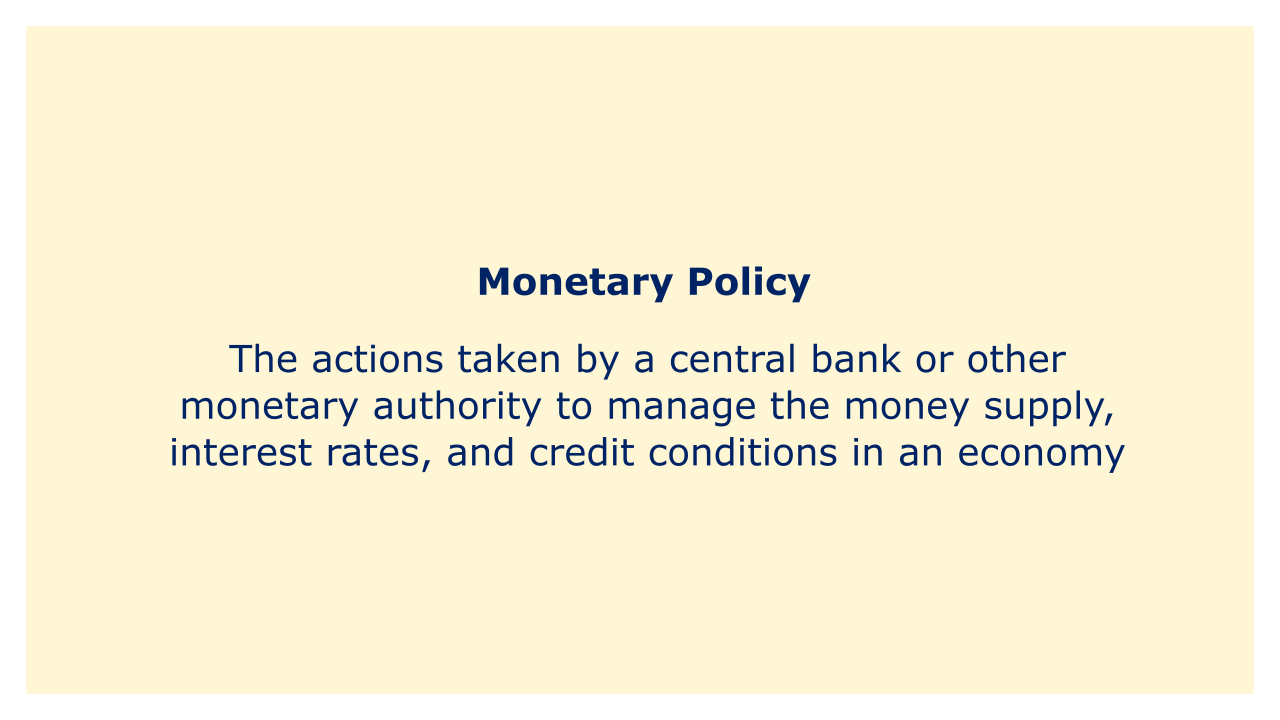 |
| Image: Moneybestpal.com |
Monetary policy refers to the actions taken by a central bank or other monetary authority to manage the money supply, interest rates, and credit conditions in an economy in order to achieve specific macroeconomic objectives such as price stability, full employment, and economic growth.
Short-term interest rate manipulation is the most popular method employed by central banks to carry out monetary policy. The federal funds rate and other short-term interest rates can be set as targets by the central bank, which can then have an impact on how much money and credit banks and other financial institutions are willing to lend and borrow.
For instance, if the central bank wants to promote economic growth and cut unemployment, it may lower interest rates, which makes borrowing more affordable and motivates individuals and businesses to invest and spend more. On the other hand, if the central bank wishes to fight inflation and maintain price stability, it may raise interest rates, which increases the cost of borrowing, encourages saving, and lowers expenditure.
Central banks have more instruments at their disposal than interest rate manipulation to affect the availability of credit and the money supply in the economy. In order to affect the quantity of reserves that banks keep and the level of interest rates, they could, for instance, engage in open market operations, which entail buying or selling government securities on the open market. In order to affect the amount of money that banks can lend, they can also change the reserve requirements, which are the minimum quantities of reserves that banks must retain.
In the long and short terms, monetary policy can have a considerable impact on the economy. The efficiency of monetary policy is however influenced by a variety of variables, including as the economy's current health, the level of inflation expectations, and the extent of development of the banking and financial markets.
